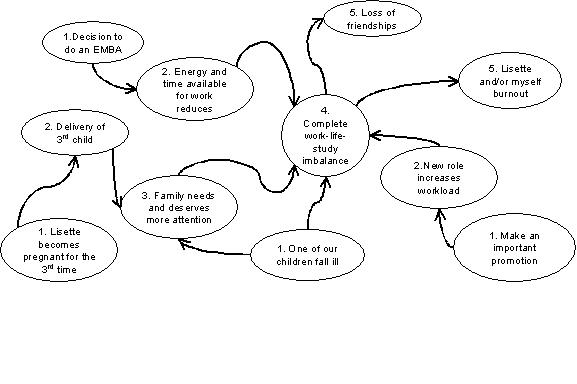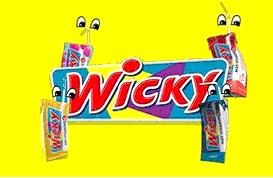Difference between revisions of "Verheij, Frans - Learning Log"
| Line 26: | Line 26: | ||
Another good learning experience from the scenario planning class is the knowledge gained and access to WIKI technology, a special, very flexible and open website. Before starting the scenario elective, Wicky stood for a kids drink of which my children drink more than is good for them. | Another good learning experience from the scenario planning class is the knowledge gained and access to WIKI technology, a special, very flexible and open website. Before starting the scenario elective, Wicky stood for a kids drink of which my children drink more than is good for them. | ||
[[Image: | [[Image:Wicky_V02.jpg]] | ||
Figure 2, Wicky kids drink | Figure 2, Wicky kids drink | ||
My group has used the wiki extensively to communicate our groups progress and when inviting subject matter experts from BiogenIdec (CFO, CEO, Nobel prize winner) the wiki worked out the be a great medium. I have also started to use other wiki pages like http://en.wikipedia.org/wiki that have, both privately and profesionally proven to be a great and usefull knowledge source. | My group has used the wiki extensively to communicate our groups progress and when inviting subject matter experts from BiogenIdec (CFO, CEO, Nobel prize winner) the wiki worked out the be a great medium. I have also started to use other wiki pages like http://en.wikipedia.org/wiki that have, both privately and profesionally proven to be a great and usefull knowledge source. | ||
Revision as of 20:30, 15 December 2005
Personal, Academic and Professional Reflection Frans Verheij on scenario planning class
Frans Verheij
RSM, EMBA 2005
15 December 2005
Personal Reflection
Over the past 4 months I followed Daniel Erasmus scenario planning class. In this period I have asked myself the question “is the practice of scenario planning valuable? Could there be any benefit in developing specific scenarios for my company or myself?” The answer to the question is definitely yes; if you are able to create a credible view of the future, somehow develop scenarios with differences in likelihood, you will be able to amend your strategy to the most likely scenarios of the future. The Shell example where management, as only oil company, seriously started to consider the fact that the oil market would not be driven by demand but by supply has moved Shell in the seventies up from 5th place to biggest oil producing company in the world. In my specific industry, if we would somehow be able to get a better understanding of the most important life threatening deceases (and they will not be aids or cancer) in 20 years we could start developing cures today. Even in our group’s scenarios on the future of the biotech industry for medical applications in 2015 in which the group could not get consensus (to put it nicely) between the most likely scenarios, I found the scenario process very helpful in understanding the industry better and the forces that will affect the future of the industry. Also, while moving towards 2015 I will understand how specific events are indicators that will lead to specific scenarios coming true. (E.g. if more negative incidents happen with Biotech drugs like recalls, dying patients or unsuccessful cloning this will heat up the ethical debate enormously which will affect governments willingness to support the industry, etc, etc). We agreed with our scenario group to come together in 2015, most likely on a tropical island, and see which of our three scenarios has become reality.
I would also like to reflect on my work-life-study (im)-balance during the MBA, considering that this is the last assignment due before I will be able to re-introduce myself to my wife and three young children (in about 90 minutes we will open a big bottle of champagne). If I would have written three scenarios one would be as explained in the causal diagram below (or bubble diagram as my fellow students called them).
Scenario 1; Work-Life-Study Imbalance creates personal valley of despair
Before starting the MBA I would probably have thought that the scenario described above would be very unlikely. Unfortunately this scenario became very real in 2005. Fortunately we have intervened successfully in this system; I started working part time, we reduced pressure of MBA and we got additional family support (mother in law, cleaning lady, additional child care). So by changing a few driving forces and relationships in this system we were able to change the future. So in reality my wife only got overtired and did not burn out and we only lost two, very loose, friendships. “System thinking involves the use of various techniques to study systems of many kinds. It aims to gain insights into the whole by understanding the linkages, interactions and processes between the elements that comprise the whole "system". System thinking can help to avoid the silo effect where a lack of organizational communication can cause a change in one area of a system to adversely affect another area of the system. Systems thinkers are particularly interested in studying systems because changing a system frequently leads to counterintuitive system responses. For example feedback loops may operate to either keep the organization in check or unbalance it.” http://en.wikipedia.org/wiki/Systems_thinking
Professional Reflection
During the past 4 months we have learned the foundation and process of how to develop scenarios in a systematic way; articulating the issue, executing research adressing uncertainties, developping and investigating driven forces, developping system diagrams creating relationships between the driving forces, developping 2 to 4 scenarios, mapping the scenario in a causal diagram adding the dimension of time and transforming scenarios into strategy. Knowing that building and executing a strategy is all about making choices it is good to know that some of these choices become easier using scenario planning. It is my strong opinion that scenarios should be planned with the use of both external scenario experts with an open mind to the scenario topic and inside knowledge on the topic in all parts of the scenario building process. Within BiogenIdec, scenario planning should be an important task of our strategy team. This task, in our size company, can impossibly be executed without the help of external expertise but could equally never be executed without internal inside knowledge. Interesting scenarios for our company that will affect the company’s strategy are: - The global future of Multiple Scleroses in 2015 - The state of technology in Biotechnology in 2020 - Main threats to human health in 2020
Another good learning experience from the scenario planning class is the knowledge gained and access to WIKI technology, a special, very flexible and open website. Before starting the scenario elective, Wicky stood for a kids drink of which my children drink more than is good for them.
Figure 2, Wicky kids drink
My group has used the wiki extensively to communicate our groups progress and when inviting subject matter experts from BiogenIdec (CFO, CEO, Nobel prize winner) the wiki worked out the be a great medium. I have also started to use other wiki pages like http://en.wikipedia.org/wiki that have, both privately and profesionally proven to be a great and usefull knowledge source.

